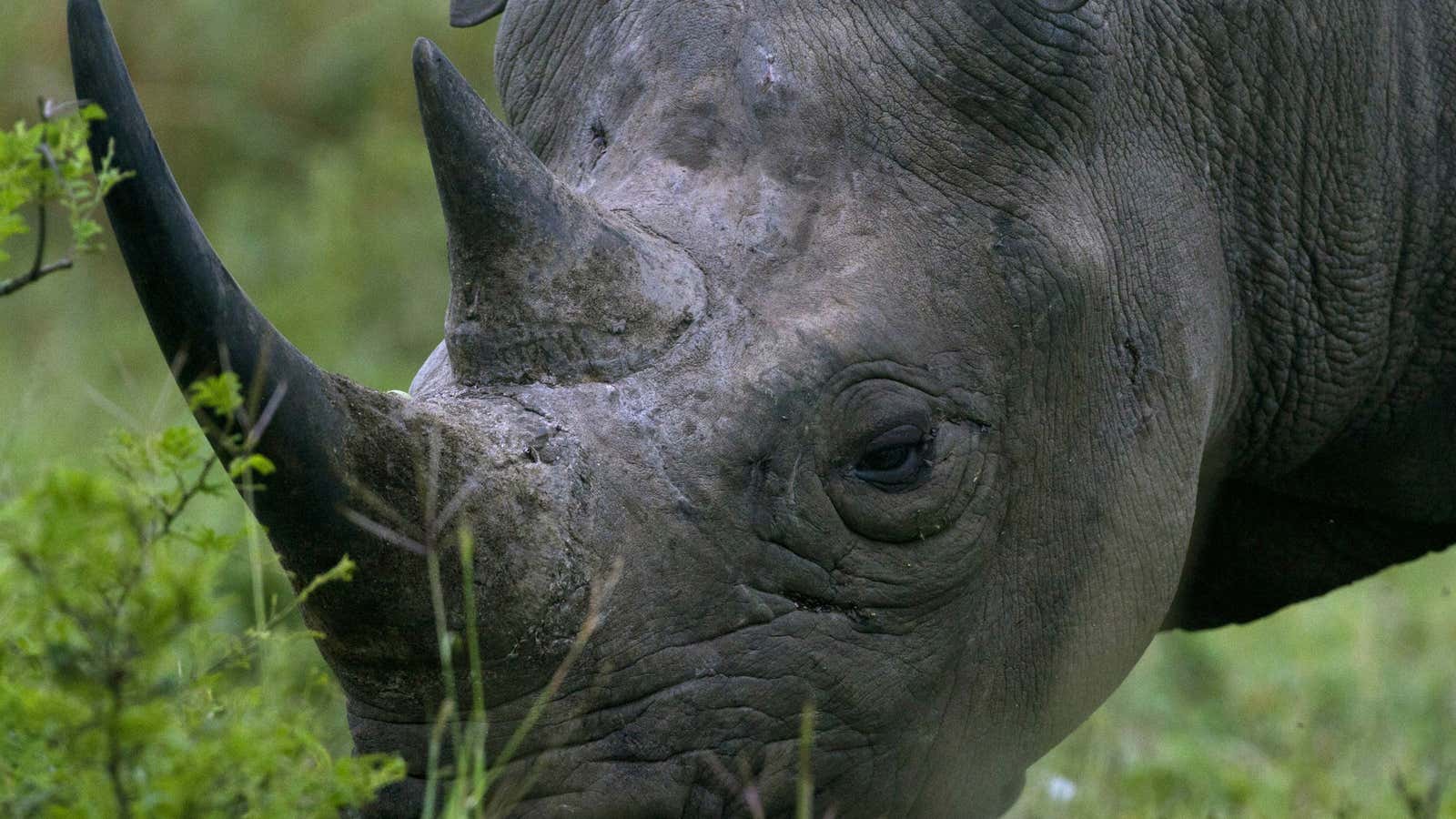The battle against poachers is becoming a technological arms race. For every elephant’s GPS tracking collar and drone for protective surveillance, there is also a poaching ring that’s trying to scrutinize a tourist’s safari photo to find the exact coordinates of an endangered species.
The provenance of the photo above, which made the rounds on Twitter this weekend, is unclear. (Update: The photo was posted on May 4 by Eleni de Wet, the owner of a Johannesburg, South Africa branding and advertising company.) But it’s not the first suggestion that tourist photos of endangered animals contain information that can betray their whereabouts to tech-savvy poachers.
“The method is to send a young couple on safari with a GPS-enabled smartphone, which they use to take a photo of the rhino. The exact co-ordinates are attached to the picture, allowing poachers to come in after dark and track the animal,” said Marc Reading, whose marketing and communications company represents South Africa’s national parks, in a 2012 interview with the Sunday Times (paywall).
Broadcasting an animal’s coordinates could also be done accidentally—many smartphones and GPS-enabled digital cameras automatically embed geotagged data, which lists the physical coordinates where a photo was taken, in the EXIF data that is part of image files. If the picture is uploaded to a social media site with the geotags intact, it could leave the animals vulnerable.
For example, here’s a geotagged image of a rhino taken on safari in Lewa, Kenya (don’t worry—the photo is from 2011).
As Quartz has reported, the poaching of rhinos is driven by demand from Asia, where their horns have rumored (but wholly disproven) medicinal powers. More than 1,000 were killed in South Africa alone last year, a 42% increase from 2012.
The technological arms race between poachers and anti-poachers has also taken the form of hackers trying to gain access to the encrypted GPS data of a Bengal tiger, according to a report by National Geographic.
Incidentally, it’s not just poachers who can use the geotagging trick: Insurgents in Iraq used it to destroy four US Army helicopters in 2007, after soldiers posted geotagged photos on social media.





